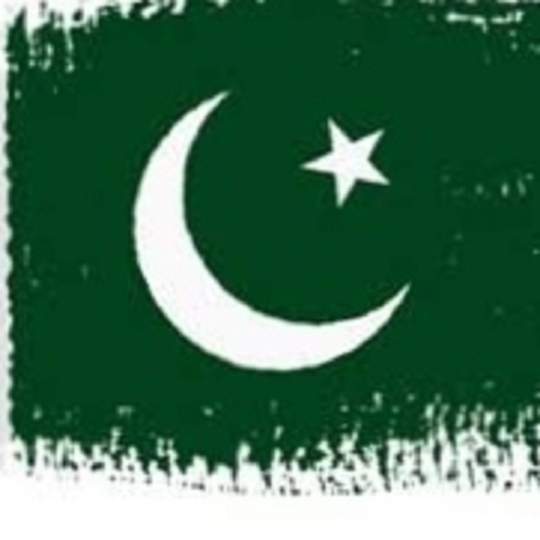State of Disunion
Shahzad Sharjeel | 30 June 2021
PAKISTAN has historically relied on two centres of power, ie, the Kingdom of Saudi Arabia — both as original benefactor and a US proxy — and China. It takes a feat of jugglery to accommodate these two seemingly disparate worldviews. It is, however, when KSA and China get their ducks in a row that our goose gets cooked. Don’t get me wrong, there definitely will be winners on our side too, but most likely, it won’t be us common folk. Why? For the simple reason that most of us are neither property tycoons, nor captains of industry salivating at the prospect of free ports from Karachi to Gwadar. No Mehran-Bolan conspiracy here, it’s just that the rest of the country is landlocked.
Many a Karachi businessmen, ‘sick and tired’ of the rent-seeking behaviour of everyone who is someone in the province, including the treasury, opposition, saviours and the para-saviours running everything from water hydrants to housing societies in the megapolis dream of a ‘free’ Karachi. The question is, free from what — or should it be whom?
Hain kawakib kuch; nazar atay hain kuch (The stars are not what they appear to be). What can be more German than Mercedes or more Saudi than the Red Sea Gateway Terminal? Should Pakistan be wooed by such behemoths, would it rankle our Chinese friends? No. Because they are both partially owned by our Chinese friends.
“Declare Karachi or at least Port Qasim and the adjoining 50 square kilometres as a duty-free zone, and businesses from across the world would rush to invest there even if you ask $100,000 for one square metre of land’, the head of a leading conglomerate was repeatedly heard saying. Asked who would run this proposed duty-free zone, he named the institution that knows how to run everything.
Pakistan suffers from an extreme trust deficit.
Does the tug of war over Sindh’s coastal islands, the size of Malir District, and the brouhaha over the proposed creation of another district (Keamari) in Karachi begin to make sense?
Ties between the province and the centre have hit a tense low. A flurry of missives by the chief minister underlining Sindh’s complaints regarding the apportionment of resources, from funding to water have reportedly irked the prime minister. During a recent meeting, when the chief minister repeated his misgivings, the prime minister is said to have thumped his desk and shouted, ‘enough is enough’.
After the utter unruliness in the National Assembly during the budget and post-budget sessions and its replication in the Balochistan Assembly, not much is left to the imagination where the effects of polarisation are concerned. It cannot be denied that the various stakeholders are not even trying to find a neutral, civil space, away from the media glare to have a working relationship at least on a handful of issues of national interest.
Pakistan suffers from an extreme trust deficit between organs of the state, apex institutions and the federating units. These differences range from collection and redistribution of fiscal resources, extraction of natural resources and distribution of their dividends to water. The portfolio of inter-provincial coordination assumes immense importance in view of these schisms. However, instead of using it to at least narrow down differences among the federating units before only the most intractable ones are elevated to the Council of Common Interests, it is entrusted to someone who seems more interested in matters of the Pakistan Sports Board, and for reasons of capacity and space to operate, would rather meet kabaddi teams.
At a recent Indus River System Authority meeting, the member representing Sindh reportedly had an object thrown at him by the body’s chair for having the temerity to repeatedly raise the issue of release of water to Punjab from the Chashma and Taunsa link canals. According to the rules, link canals can only be operated in case of surplus flows.
The issues between the provinces and centre are issues of power differential as they are replicated between provincial headquarters and their own administrative units such as divisions and districts. The rural-urban chasm in Sindh is widening. The misgivings of south Punjab against a powerful central Punjab represented by Lahore regularly brim over. Not all is well between the erstwhile Fata, the Hazara Division, and Peshawar. The resurgence of the Taliban in Afghanistan will only complicate things in KP. Balochistan, besides the forced disappearances and security establishment-led semblance of order, has Baloch-Pakhtun issues, sectarian violence and its own variant of cross-border challenges such as the Quetta Shura to worry about.
All of this, and the centre, according to the opposition, is busy planning another elections robbery. Not willing to solely fly on a wing and a prayer, the PTI is now betting on the EVMs along with the AVMs. Remember, our friends KSA and China have no opposition and a one-party rule respectively.
Shahzad Sharjeel is a poet and analyst.
This article was originally published on Dawn.
Views in this article are author’s own and do not necessarily reflect CGS policy.
